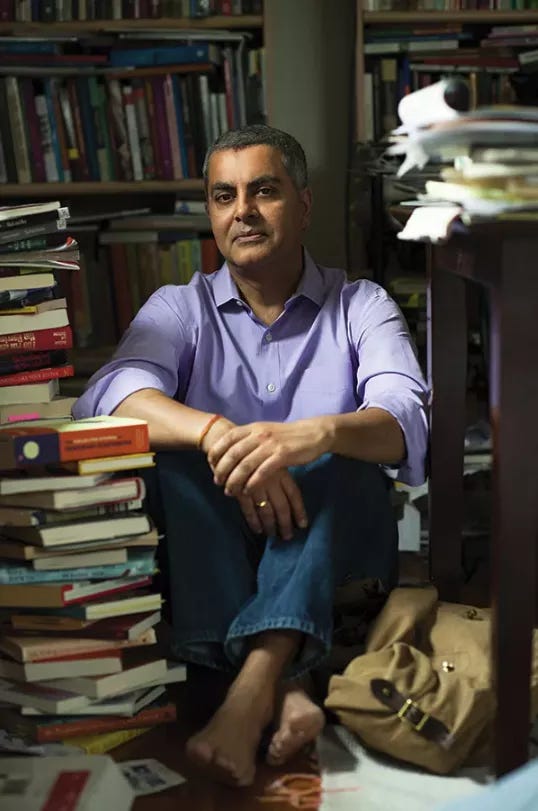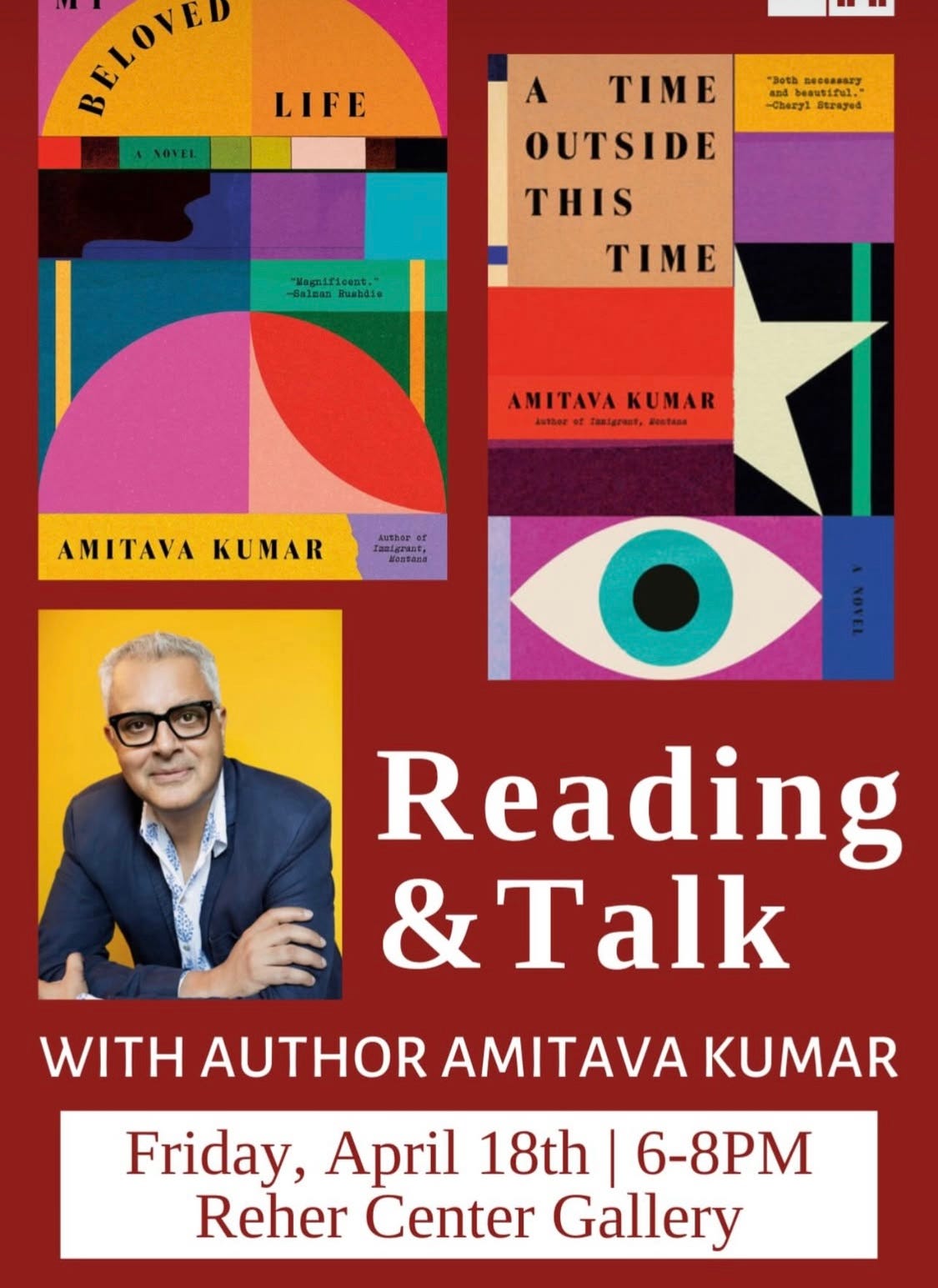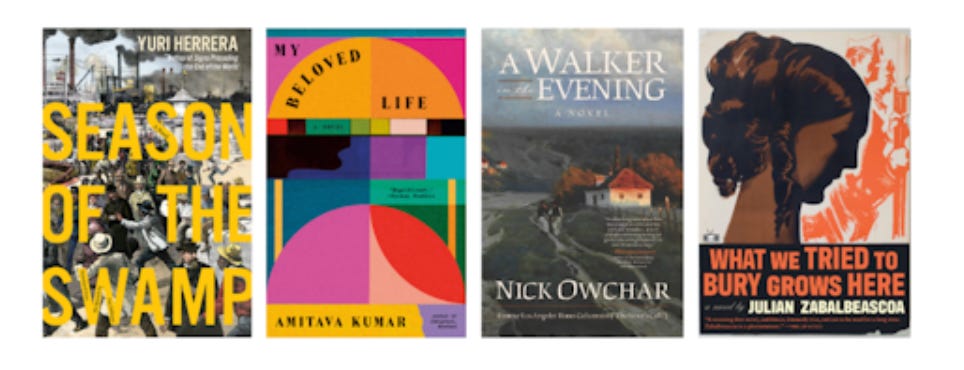Three Acts
In which I tell you about my upcoming readings
From The Chronogram. Photo by Jennifer May.
The above photo was taken some years ago in my old apartment. After my mother’s death, my head had been shaved and my hair was just growing back. The photographer asked me to sit down in my cramped study among the piles of books. (Please note the big Deborah Eisenberg book on the top of the stack in the foreground.) Anyway, this is the photo used by The Chonogram in the recent interview about my reading at the Reher Center Gallery in Kingston, NY on Friday, April 18, 6 PM. If you live near here, please come!
My reading will be focused on the immigrant experience. Brian Mahoney, the editor of The Chronogram, asked me what I was writing or thinking about the current times. I told Brian,“I want to think: What is the best story I can write? Maybe it’s not as immediate as signing a petition. But what can I do, as a writer, that might stay with someone longer than a news cycle?” Then I told him about a message I had received from a friend the previous day. My friend had quoted the Russian film-maker Andrei Tarkovsky: “I believe that the artist’s Olympian calm is vital to the creative act. An artist shouldn’t be bustling about, carrying on, and externally demonstrating his or her concerns. Because usually, the stronger the artist’s temperament, the less it’s expressed externally.” At this and other readings, I expect my artist’s temperament to crack a little bit and I’ll probably end up expressing things externally—but I also hope to share from recently published work, other examples of what Comrade Tarkovsky would perhaps call internal expressions.
The following day, I’ll be doing a different kind of reading by Zoom. This will be under the auspices of a group called “Indian Diaspora Washington DC Metro.” This will be on Saturday, April 19. If you are in India, the time there will be 8.30 PM. On the East Coast in the US, it will be 11 AM. The title for this reading comes from a piece I published in Granta in 2023; however, the principal chunk of my talk will be bits from my more recent writings on India, both fiction and non-. I’m interested in discussing what I have been reporting about my homeland over the past year or so, but I’m also as interested in hearing what others, particularly Indians, have to say on the matter. I understand that there will be time for a Q&A. Please log in! Here is the Zoom link:
https://us02web.zoom.us/j/83337021563?pwd=NFg3OXovbTRQY1B3OXR0T0ZOMmJzQT09
ID: 83337021563 ; Passcode: 608608
The third and final reading I want to tell you about is going to be at the Los Angeles Times Festival of Books where I am among the nine million authors reading from their work over just two days. I’m going to be on a panel with three other writers. The event description for the panel says: “These deeply researched, vividly drawn historical novels make us feel like we are actually living in the eras they describe. Even more familiar are the characters' journeys: a tale of survival and longing during the Spanish Civil War; the entire arc of a storyteller's life in India; an exile's rise to power in turn-of-the-century New Orleans; and an ambitious cross-continental tale of apostolic anxiety in 1880s Europe. Historical fiction reminds us that history often repeats itself—but we don't have to—and that no single life is without consequence.” Sunday, April 27, Annenburg Auditorium, 10.30 AM. Ticket required.






Invaluable in a number of ways, but I'm struck by the faith and grief of shaving your head in mourning. Faith that it will grow back. Faith amply rewarded.
Yours in bustling about,
tom